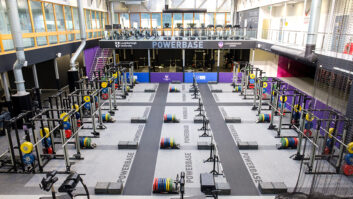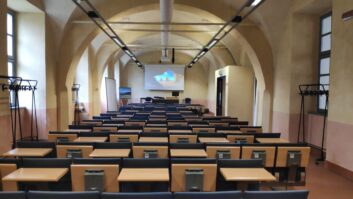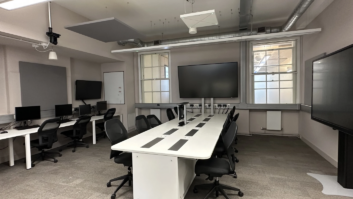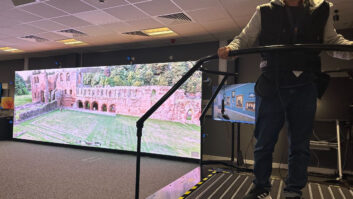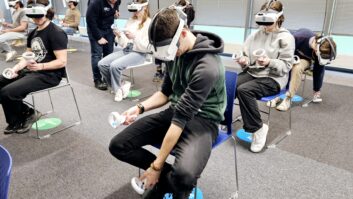
Polycom has reported the results of a survey of 500 school and university teachers across the UK, France, Germany, Russia and the Nordic region. The survey found that videoconferencing is the most desirable way for school teachers to communicate with parents, students and colleagues when in-person interactions cannot take place.
Three-quarters of the teachers (77%) think that more investment in videoconferencing would benefit their students and improve their education, citing the increased impact and engagement with subject matter that videoconferencing encourages. Two-thirds of those surveyed (67%) believe that videoconferencing improves core skills for use in later life and the workplace.
Another finding of the survey is that the uses of videoconferencing in learning are viewed somewhat differently by school teachers and university tutors. Teachers of school-age children saw the most potential for using videoconferencing as a collaborative working tool (65%) and for virtual field trips (60%) – in other words as a way to expand the scope of the learning experience. University tutors, on the other hand, said that a more important benefit of videoconferencing, from their experience, is the ability to include more students – such as reaching home-based students (64%) or enabling those who missed a class to view it later (62%).
Over half the university tutors (54%) also stated that access to subject-matter experts was an important feature of videoconferencing; and 56% see videoconferencing as a means of extending their educational services, therefore enabling them to teach via distance learning.
“The popularity of videoconferencing as a method of communication in education is not surprising with an overwhelming majority (85%) of educators who expect the use of these technologies to increase over the next five years,” said Gary Rider, EMEA President, Polycom (pictured). “The ability to connect students with other teachers and students around the world face to face has enormous benefits to their educational experience,” continues Rider. “Video is the only technology that allows a visual, rich learning experience outside of being in the room together. Video also enables higher quality collaboration and learning. This is important in an educational setting, especially distance learning, where teachers can ensure students are focused and absorbing new information better, while students can benefit from a richer learning experience.”
Polycom says that its education customers have already seen the benefits of utilising videoconferencing as a way of removing the classroom walls.
“The National Distance Education University (UNED) educates through a blended-learning methodology based on the principles of distance learning; implementing Polycom’s cutting edge videoconferencing was essential to effectively fulfil the obligation of the University to raise the standard of collaborative communications,” said Covadonga Rodrigo, Vice Rector for Technology, UNED. “Our Polycom Unified Communication solution allows us to connect teacher and students at any time, any place and over any distance, and enhances the distance learning experience for all our lifelong learning programmes.”
“Through Polycom’s solutions, we’ve seen teachers sharing ideas, we’ve been able to facilitate Continued Personal Development sessions with staff between schools, and have also developed excellent international link,” said Alan Cameron, Education Officer for Dumfries and Galloway. “One school has linked up for home economics lessons in Poland and another of our schools links with a school in the Caribbean. It has been very successful, and, looking to the future, it would be fantastic to have all schools kitted with video conferencing solutions.”
Polycom believes all schools should have access to better technologies and the enriched educational capabilities of video collaboration, and so is announcing a new ‘Getting Started with Video Education’ bundle – the Polycom RealPresence Education Bundle.
Polycom is offering its Polycom RealPresence Room HDX 7000 and Polycom RealPresence Room HDX 8000 bundles together with the newly announced Polycom UC Board for one year starting from November 2011. These room telepresence systems are said to provide users with high quality audio and high definition video communications from low bandwidths using standards-base H.264 High Profile Technology, which reduces bandwidth needs by 50%. The Polycom UC Board is a whiteboard solution which improves communication and collaboration in video conferences by sharing content written on the whiteboard to all screens and mobile devices that are connected to the video meeting. Both bundles also include 50 x m100 telepresence licences.

